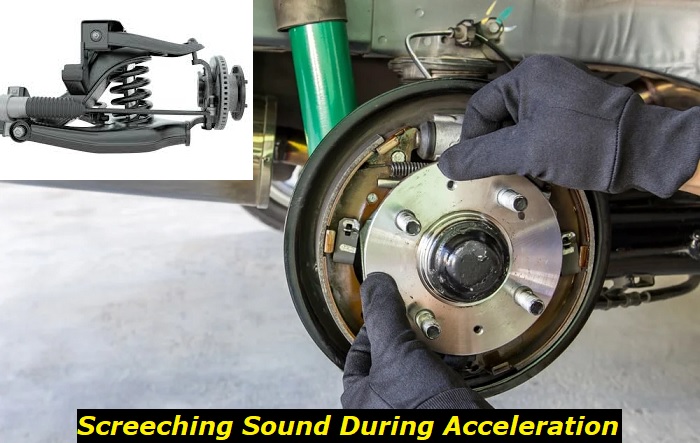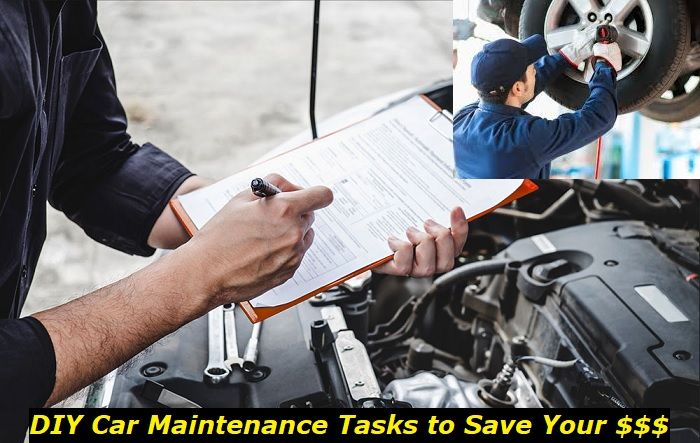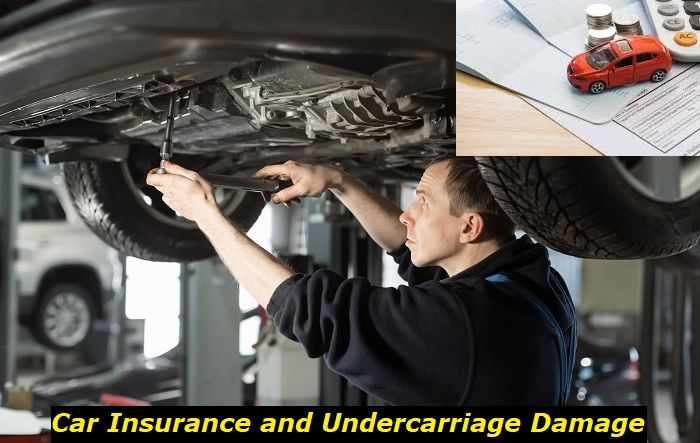It can be a cringeworthy experience driving your car around with a loud noise from its engine bay or underneath it. If you're wondering what the problem is, this article will help you narrow down the reason why your car is producing the metal screeching sound when accelerating and how to fix it.
Wheels problems highlights
- Level of importance:medium
- Common reasons:potholes, accidents, lug nut problems
- DIY inspection:possible
- DIY repair:possible
- Average price in shops:$50 - $350
- Average time:0.5 - 3 hours
- If ignored:wobble, wheel falling off, vibration, no drive

What's a Screeching Sound?
The screeching sound is a high-pitched sound of metal scratching on another metal's surface. The screeching sound mostly comes from underneath the car and can be accompanied by warning lights on the dashboard to help with diagnosing the problem.
Other types of noises related to the screeching sound that a car makes to indicate a problem are the scraping, grinding, squealing, rattling, and squeaking sounds of metal. You'll likely hear the noise in various instances, such as when the vehicle is braking, when you turn on the ignition, taking a turn, idling, or accelerating.
Causes of a Screeching Sound when Accelerating
There are varying reasons why a screeching sound may be heard when accelerating. The reason can be as simple as a foreign item in your wheel to a more complex reason, such as a faulty drivetrain.
Some of the reasons include:
1) Foreign Item in your Wheel
When a small pebble or rock gets stuck in the car wheel between the brake disk and the back plate, you'll likely hear a squealing or screeching sound.
2) Faulty Brake Components
This is a common reason for the screeching sound that can be heard when accelerating. The problem can be due to braking components such as a damaged brake pad due to wear and tear, sticking brake calipers, or a bent brake rotor shield. The noise can be accompanied by a warning brake light that illuminates the dashboard.
- Damaged or Misaligned Brake Pad
Whenever the driver steps on the brakes, the brake pads press onto the disc rotors, causing friction and making the car stop. Since the brake pads are constantly in use when you press the brakes, they are prone to damage due to wear and tear. A high-pitched squealing or grinding noise comes about if the brake pad has gone for a long time without a replacement. Apart from hearing the sound during acceleration, the driver may also hear it while braking.
- Sticking Brake Calipers
The brake caliper houses the brake pad and piston. The brake calipers can get stuck if the slides inside freeze due to a lack of lubrication. Whenever the brake caliper gets stuck or hung, the brake pad cannot disengage from the brake rotor surface, causing the screeching sound.
- Bent Brake Dust Shield
The brake dust shield protects the brake components, such as the rotor, from dust, water, or debris. If the brake rotor comes into contact with the bent or faulty dust shield, you'll hear a scraping sound.
3) Loose Serpentine Belt
The serpentine belt is a long rubber belt located next to the engine that's a power source for car parts such as the power steering pump, water pump, alternator, and air conditioning. A loose serpentine belt can also be the source of the high-pitch squealing sound that comes up when you turn on the ignition.
The noise usually turns louder during an abrupt acceleration or turn of the vehicle. If the belt becomes loose, it can cause the alternator to slip. A serpentine belt can become bad or slip due to misalignment, exposure to cold weather or the car's coolant, or if the tensioner doesn't have the required tension.
4) Worn-out Cambelt
The cambelt controls the internal combustion engine's timing and ensures that the camshaft and crankshaft move in synchronization. The cambelt starts to wear out after a while if it isn't replaced. The loose belt then produces a squealing, grinding, chirping, or rattling sound. The cambelt can also produce noise if it doesn't have the right tension.
5) A Problem with the Suspension
A suspension system helps stabilize the steering of the vehicle, maximizing the friction between the tires and the road surface and smoothing out a bumpy road to create a safer and more comfortable driving experience.
When suspension components such as struts, shocks, coil springs, and control arms are worn out, you're likely to hear a squealing or clunking sound coming from underneath the car. The sound is produced due to metal-to-metal contact when the strut or shock bottoms out due to the car hitting a bump. Other symptoms of a bad suspension are the car pulling in one direction and uneven tire wear.
6) Loose or Damaged Exhaust Heat Shield
A heat shield is a thermal barrier that protects the cabin area components from the excess heat that comes from the engine or exhaust system. If the heat shield becomes loose or gets damaged due to heat or rust, it vibrates and produces a rattling sound when you drive your car. When the heat shield gets damaged it can't contain the high temperatures, causing excess heat to enter the engine bay.
7) Misaligned Drive Shaft
When the driver shifts into drive, the drive shaft or drive train does the work of transferring the torque from the engine rotation movement into the vehicle's motion. If the drivetrain components like the couplers, u-joints, or carrier bearings wear out, the drivetrain vibrates and produces a screeching or clunking noise when shifting or accelerating the car.
8) Broken or Worn-out Motor Mount
A motor mount is responsible for stabilizing the engine and absorbing the vibrations and shocks when the engine is in operation. When the motor mounts break or get damaged due to wear and tear, you'll likely hear a loud rattling or clunking noise coming from the engine bay when you accelerate your car. Failure to fix the engine mount can lead to further damage to the engine since it's not well secured.
9) Throwout Bearing Problem
The throwout bearing temporarily disengages the car engine from the transmission when shifting gears. If the throwout bearing has an issue, it comes into contact with the pressure plate. This occurs when the foot is pressed onto the clutch pedal while driving. A faulty throwout bearing produces a loud rattling, grinding, or screeching sound.
10) Low Transmission Fluid
The work of the transmission fluid is to offer lubrication to various transmission and gear parts and acts as a coolant. If the transmission fluid level becomes low due to leakage or the fluid becomes contaminated, you'll hear rhythmic grinding, whining, or rattling noises when you shift gears or accelerate.
Other symptoms associated with the low transmission fluid are the illumination of the check engine light on the dashboard, shuddering or sudden jerks, or difficulty shifting through the gears.
11) A Lax or Broken Timing Chain
Loss of strength by the chain tensioner or timing chain creates more movement than required. This results in engine clutter during acceleration. The cylinder piston that moves up the engine stroke emits heat that causes premature ignition of the engine's air-fuel mixture. This produces a rattling sound when the engine is heating up during the idling or acceleration of the car.
12) Crankshaft Bearing Noise
The crankshaft bearing holds the crankshaft in place, allowing it to rotate under inertia within the engine block. If the crankshaft bearing wears due to friction, it produces a rumbling or whining sound that originates from the engine bay. The car produces the sound while accelerating. Other symptoms that signal a damaged crankshaft bearing are metal shavings present in oil and low oil pressure.
Is it Safe to Drive Your Car with a Screeching Sound?
Several car parts can cause a screeching sound. Some repairs to the issues that cause the sound are minor, while others are major. Some issues, like a worn-out serpentine belt, may be safe to drive for a few days or weeks before you facilitate a replacement.
However, other issues that cause the screeching sound, such as faulty brake components, require immediate attention since continuing to drive in that condition can lead to a fatal accident. If you're unsure whether the issue can allow driving your car for a few weeks or days, it's better to consult your mechanic or visit the nearest auto repair shop.
How to Fix the Screeching Sound When Accelerating
Fixing a screeching sound comes after making the right diagnosis of the problem causing the sound. Various fixes include
- If the heat shield is loose, use a ramp or jack to raise your car, then go underneath the car and fasten the heat shield using screws. If the screws are absent, you can improvise and use a wire to reattach the heat shield. You'll have to do some replacing if the heat shield is severely damaged.
- If the problem lies with the suspension system, this will require raising your vehicle and replacing worn-out suspension parts such as shocks, struts, tie rods, control arms, or coil springs. After replacing them, ensure you tighten them using the required torque.
- If you have an issue with the drive train, you'll have to locate it underneath the car, where it runs from the rear differential to the transmission. Remove the bolts that connect it and align it so that each of its halves' serial numbers faces the same direction. Ensure that you line up the markings before reinstallation of the driveshaft.
- For an issue of loose engine mounts, you should first switch off your car, remove the cable from the negative terminal of your battery, and use a wrench to tighten the bolts that secure the engine mount onto the vehicle's frame.
- Faulty brake components need replacement. You can also rebuild a faulty brake component like a sticking brake caliper.
- An issue with low transmission fluid needs refilling to the required level. For an old and dirty transmission fluid, remove the transmission pan and drain the fluid. You can then refill it with fresh and new transmission fluid. You can also replace the oil filter.
- If you have a loose serpentine belt, you'll have to loosen the alternator bolts and then add tension to the serpentine belt. A worn-out drive belt will require replacing.
Bottom Line
There you have it-reasons why a screeching noise is coming from your car and how to fix it. You can easily fix some problems while others require the help of a professional mechanic.
About the authors
The CarAraC research team is composed of seasoned auto mechanics and automotive industry professionals, including individuals with advanced degrees and certifications in their field. Our team members boast prestigious credentials, reflecting their extensive knowledge and skills. These qualifications include: IMI: Institute of the Motor Industry, ASE-Certified Master Automobile Technicians; Coventry University, Graduate of MA in Automotive Journalism; Politecnico di Torino, Italy, MS Automotive Engineering; Ss. Cyril and Methodius University in Skopje, Mechanical University in Skopje; TOC Automotive College; DHA Suffa University, Department of Mechanical Engineering






Add comment